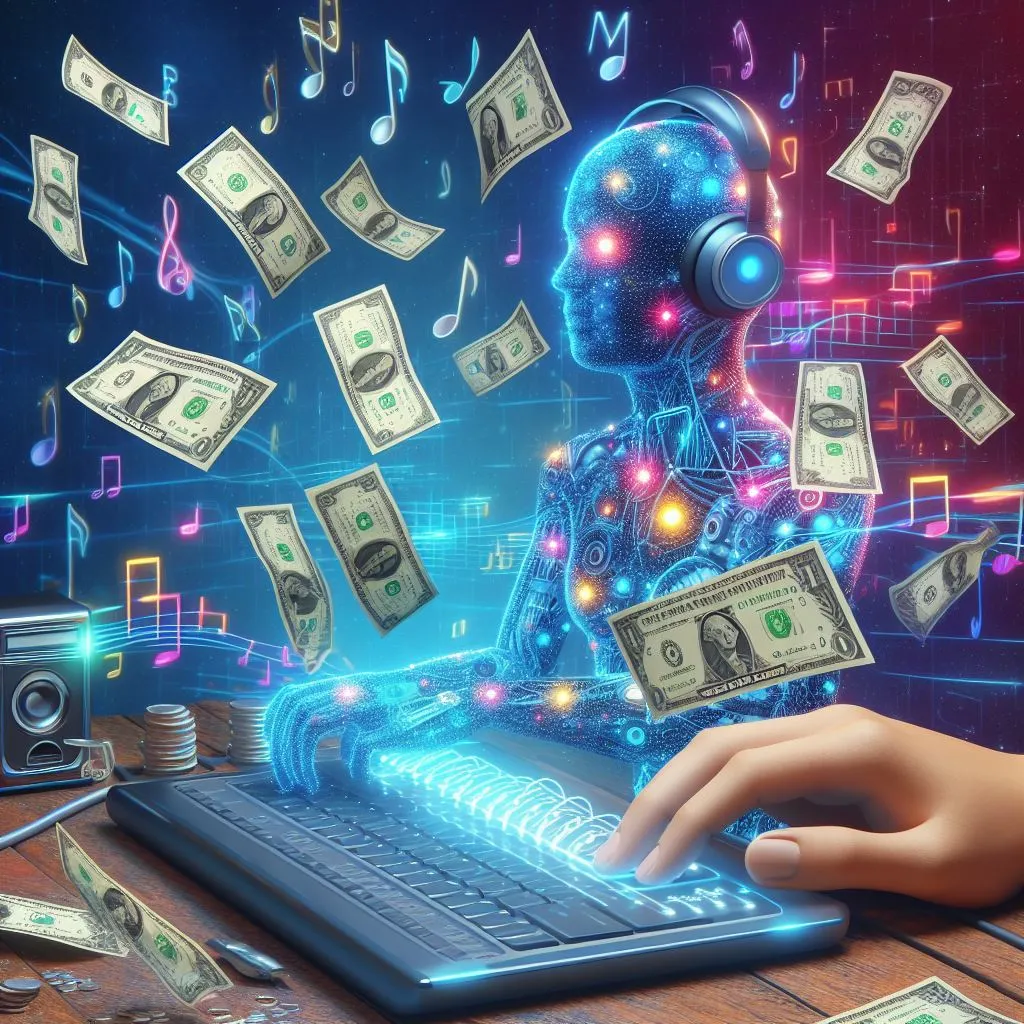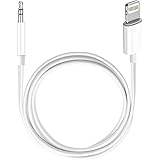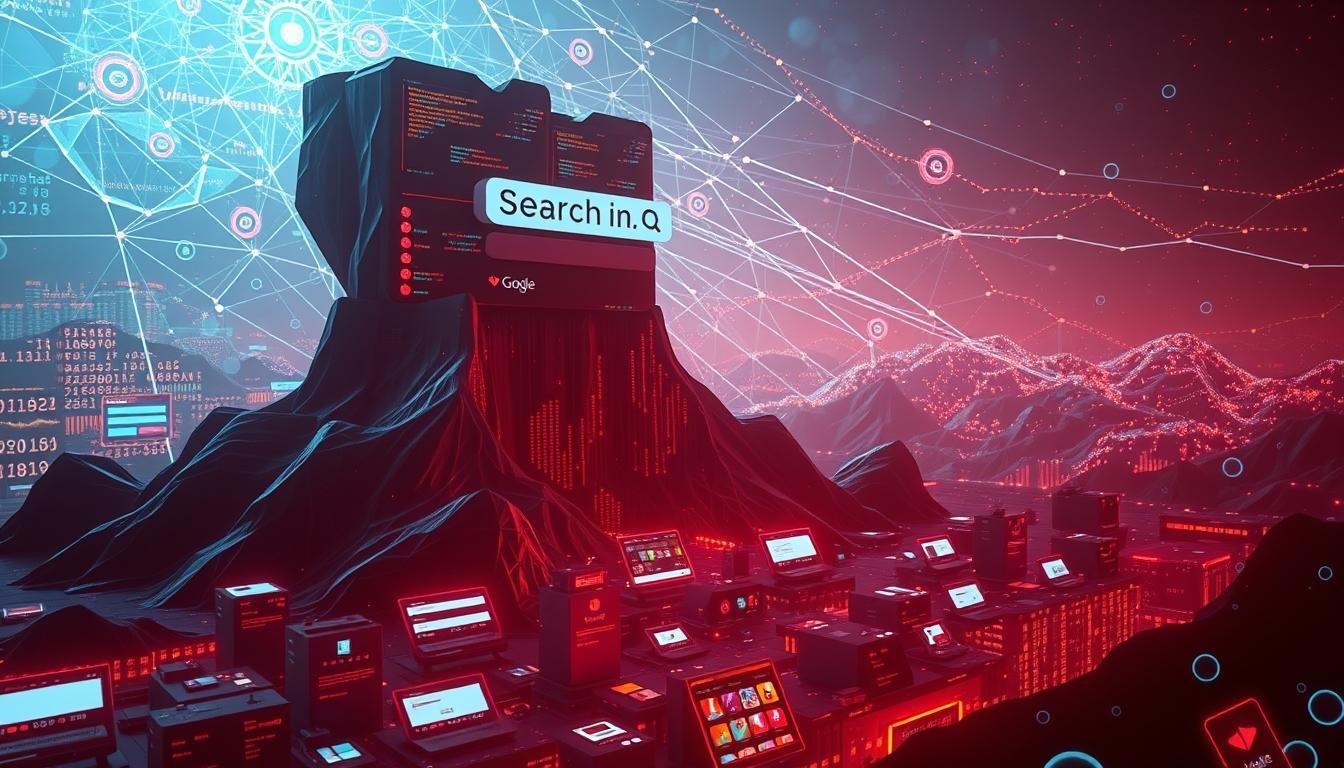Introduction
Are you ready to tap into the world of AI-generated music and turn it into a lucrative business? In this article, we will explore the exciting possibilities that await you in the realm of AI music, as well as provide you with practical tips to help you monetize this innovative form of creativity. So, if you have ever wondered how to make money with AI-generated music, look no further! Get ready to discover an untapped resource that could revolutionize the way you approach the music industry.
Understanding AI-generated Music
What is AI-generated music?
AI-generated music refers to musical compositions that are created using artificial intelligence (AI) techniques. Instead of being composed by human musicians, these pieces are generated by computer algorithms. This emerging field combines the power of machine learning and deep neural networks to produce original musical compositions.
How does AI create music?
AI creates music through a process known as machine learning. It involves training AI models on large datasets of existing music, allowing them to learn the patterns, structures, and styles of different genres. Once the models are trained, they can generate original compositions based on the patterns they have learned. AI can mimic various musical elements, including melodies, harmonies, rhythms, and even instrument sounds.
The potential of AI-generated music
AI-generated music has the potential to revolutionize the music industry in many ways. It offers musicians and producers a vast pool of creative possibilities, expanding their creative boundaries. AI can generate music in a fraction of the time it takes for humans to compose, enabling musicians to increase their productivity. Additionally, AI-generated music can provide unique and fresh sounds that push the boundaries of traditional music genres. It also allows for experimentation with novel combinations of sounds and styles that can captivate audiences. AI-generated music is not meant to replace human creativity, but rather to augment it and open up new avenues of exploration.
Licensing and Copyright Considerations
Understanding licensing in the music industry
Licenses are crucial in the music industry, as they define the terms under which music can be used, distributed, or performed. When it comes to AI-generated music, it is important to understand the different types of licenses available. For example, there are licenses for mechanical rights (recording and distribution), synchronization rights (music in combination with visual content), and public performance rights (live performances). Familiarizing oneself with these licenses will help ensure that AI-generated music is used in compliance with legal and ethical standards.
Copyright issues with AI-generated music
Copyright laws pose unique challenges when it comes to AI-generated music. Since AI models are trained on existing copyrighted music, there is a risk of unintentional infringement. As a creator of AI-generated music, it is essential to take steps to avoid copyright violations. For instance, using publicly available datasets and open-source music where copyright permissions are clearly granted can help mitigate these risks.
Protecting your AI-generated music
To protect your AI-generated music, it is important to consider copyright registration. Registering your creations with the appropriate copyright authorities will help establish legal ownership and provide additional protection against infringement. Additionally, it is recommended to consult with legal professionals who specialize in intellectual property to ensure compliance with copyright laws and explore any emerging legal considerations specific to AI-generated music.
Creating and Training AI Models for Music Generation
Choosing the right AI music generation tool
When embarking on AI music generation, it is essential to choose the right tools and platforms. There are numerous AI music generation tools available, each with its own strengths and limitations. Researching and experimenting with different tools will help you find the one that best aligns with your creative vision. Some popular AI music generation platforms include OpenAI’s MuseNet, Jukedeck, and Amper Music.
Preparing input data for training
To train AI models effectively, high-quality input data is crucial. Curating a diverse and comprehensive dataset of music is essential for training models to produce varied and original compositions. This dataset should include different genres, styles, and eras to facilitate the learning of diverse musical patterns and structures. It is also important to ensure that the dataset is properly labeled and organized for efficient training.
Training and fine-tuning the AI model
Training an AI model for music generation involves feeding it the prepared dataset and allowing it to learn the underlying patterns and structures. This process can take significant computational resources and time, depending on the complexity of the model and the size of the dataset. After training, fine-tuning the model allows for adjustments to be made to improve the quality and uniqueness of the generated music. This iterative process of training and fine-tuning is essential to achieve the desired output.
Building a Diverse Music Catalog
Exploring different music genres
One advantage of AI-generated music is the ability to explore and experiment with various music genres. AI models can be trained on specific genre datasets, enabling the creation of authentic compositions in styles ranging from classical to electronic, jazz to hip-hop, and everything in between. Exploring different genres not only allows for creative expression but also opens up opportunities to target different audiences and markets.
Experimenting with various instrument sounds
With AI music tools, musicians can explore a wide range of instrument sounds and timbres. AI models can learn the characteristics of different instruments and generate music that replicates specific instrument sounds. This opens up possibilities for creating unique compositions with unconventional instrument combinations and sound textures, expanding the sonic palette of AI-generated music.
Generating music for different moods and occasions
AI-generated music can be tailored to evoke specific moods or suit particular occasions. By training AI models on datasets containing music associated with specific emotions or events, it becomes possible to generate music that aligns with those emotions or occasions. This versatility allows for the creation of music suitable for background ambiance, emotional storytelling, or specific scenes in media productions, among other applications.
Promoting and Selling AI-generated Music

Creating a professional online presence
When selling AI-generated music, creating a professional online presence is crucial. Building a dedicated website, complete with a portfolio of your AI-generated compositions, provides a central hub for potential clients and fans to explore your work. The website should showcase samples of your music, artist biographies, testimonials, and contact information. Creating a visually appealing and user-friendly website will help establish credibility and attract potential customers.
Leveraging social media platforms
Social media platforms offer powerful tools for promoting and distributing AI-generated music. Utilizing platforms such as Instagram, Facebook, Twitter, and YouTube can help reach a wider audience and connect with fans and industry professionals. Regularly posting samples of your music, and behind-the-scenes content, and engaging with followers through comments and direct messages can help build a loyal fan base and open doors to collaboration opportunities.
Collaborating with musicians and influencers
Collaborating with musicians and influencers can significantly enhance the reach and impact of AI-generated music. Partnering with established musicians or influencers in related genres can help introduce your music to new audiences and gain credibility within the industry. Collaborations can take the form of joint productions, remixes, or live performances, allowing for the fusion of AI-generated and human-created music in exciting ways.
Selling Music on Online Platforms
Choosing the right platforms for selling AI-generated music
When selling AI-generated music, choosing the right online platforms is essential. Consider platforms such as Bandcamp, SoundCloud, and Beatport, which cater to independent artists and provide a direct-to-consumer model. These platforms allow artists to retain greater control over pricing, distribution, and revenue collection. Additionally, exploring digital marketplaces like iTunes, Spotify, and Amazon Music can expose your music to a broader audience and potentially increase sales.
Setting competitive pricing strategies
Pricing AI-generated music competitively requires careful consideration. Researching the market and understanding the pricing strategies of similar independent musicians can help determine appropriate pricing ranges. It is important to strike a balance between affordability for consumers and value for your unique compositions. Experimenting with different pricing models and periodically assessing sales performance can help refine your pricing strategies over time.
Creating compelling album covers and descriptions
Album covers and descriptions play a significant role in attracting potential buyers and setting the tone for the music they represent. When selling AI-generated music, invest time and effort in designing visually striking album covers and writing compelling descriptions that capture the essence of your compositions. Collaborating with experienced graphic designers and copywriters can enhance the visual impact and appeal of your music, increasing the likelihood of sales.
Offering Customized Music Services

Providing personalized music for videos or podcasts
AI-generated music can be tailored to fit specific video content or podcast themes. Offering personalized music services allows content creators to enhance their productions with original and fitting compositions. Collaborating with video editors, filmmakers, or podcast producers to create custom soundtracks ensures that the music aligns seamlessly with the desired atmosphere, enhancing the overall viewer or listener experience.
Creating tailor-made compositions for individuals
In addition to catering to video and podcast creators, there is a demand for tailor-made compositions for individuals. This can include personalized gifts, thematic compositions for special occasions, or even soundtracks for personal projects. Offering customizable services that allow individuals to request unique compositions tailored to their preferences provides a personalized touch that can be highly valued by customers.
Offering music licensing for commercial use
AI-generated music can also be licensed for commercial use, providing a lucrative opportunity for artists. Companies often seek music to use as background tracks for advertisements, product demos, or corporate videos. By offering music licensing options, artists can generate revenue by granting businesses the right to use their AI-generated compositions in commercial settings. Developing partnerships with music licensing agencies or directly reaching out to businesses can help explore these opportunities.
Collaborating with AI-music Companies
Partnering with AI music startups
The growing AI music sector has witnessed the emergence of various startups specializing in AI-generated music. Partnering with these companies can provide valuable exposure and networking opportunities. Collaborating with AI music startups can involve contributing to their platforms as a featured artist, participating in joint marketing campaigns, or exploring innovative ways to leverage AI-generated music. These partnerships can expand your reach and connect you with a community of like-minded individuals.
Joining AI-music communities and forums
Engaging with AI-music communities and forums offers a platform for learning, sharing knowledge, and connecting with fellow AI music enthusiasts. Online communities such as forums, social media groups, and Discord channels provide opportunities to exchange ideas, receive feedback on your AI-generated music, and stay updated with the latest advancements in the field. Actively participating in these communities helps build relationships, learn from peers, and potentially collaborate on future projects.
Exploring co-creation opportunities
Collaborative co-creation with AI-driven platforms or artists is an exciting avenue to explore in the field of AI-generated music. AI models can be used as creative partners, complementing human musicians’ skills and expanding the possibilities of music creation. Co-creation opportunities can involve working with AI-driven tools that facilitate real-time interaction between human musicians and AI models, resulting in unique and collaborative compositions that blend the best of both worlds.
Music Production and Remixing with AI

Incorporating AI-generated elements in traditional music production
AI-generated music can be seamlessly integrated into traditional music production workflows. Musicians and producers can leverage AI models to generate inspiring melodies, harmonies, or rhythm sections as starting points for their compositions. These AI-generated elements can then be refined, modified, and augmented using traditional instruments and production techniques. This hybrid approach allows for a fusion of AI-generated and human creativity, resulting in unique musical experiences.
Remixing existing songs using AI music tools
AI music tools can be utilized to remix existing songs, providing a fresh perspective on familiar compositions. By feeding original songs into AI models, musicians can generate alternative versions that retain the essence of the original while introducing new elements and arrangements. This remixing process can breathe new life into older songs, making them appealing to a broader audience and sparking renewed interest in the artist.
Creating hybrid compositions with human and AI collaboration
One of the most exciting possibilities of AI-generated music is the collaboration between human musicians and AI models. This collaboration can take various forms, such as musicians using AI-generated compositions as a starting point for improvisation or AI models generating musical elements that human musicians can incorporate into their performances. These collaborative efforts result in hybrid compositions that blend the unique qualities of both human creativity and AI-generated music.
Continuous Learning and Improvement
Staying updated with AI music advancements

The field of AI-generated music is rapidly evolving, with new techniques and advancements being made regularly. To stay at the forefront of this innovation, it is essential to continuously learn and adapt. Following industry news, attending conferences, participating in workshops, and engaging with AI music research papers can provide valuable insights into emerging trends and techniques. Embracing a mindset of continuous learning contributes to the improvement of AI-generated music and opens up new creative opportunities.
Receiving feedback and adapting to audience preferences
Feedback from listeners, clients, and industry professionals is invaluable in improving AI-generated music. Actively seeking feedback and constructive criticism helps identify areas for improvement and ensures that compositions align with the preferences of the target audience. Regularly engaging with listeners, soliciting feedback through surveys or social media, and adapting the music based on this feedback fosters a stronger connection with the audience and enhances the overall quality of AI-generated music.
Continuously refining AI models for better results
To maintain a high level of quality in AI-generated music, continuous refinement of AI models is essential. This can involve updating training datasets, fine-tuning model parameters, and incorporating feedback loops to improve the generated music. Continuously refining AI models based on the results obtained and the feedback received allows for iterative improvement and ensures that the composition output remains dynamic, fresh, and relevant in an ever-evolving music landscape.
Conclusion
In conclusion, AI-generated music presents a world of opportunities for musicians and creators. Understanding the intricacies of AI music generation, licensing, and copyright considerations ensures ethical and legal compliance. Building a diverse music catalog, promoting and selling AI-generated music, and exploring collaboration opportunities provide avenues for monetization.
Additionally, offering customized services, collaborating with AI music companies, and incorporating AI in music production offer unique creative possibilities. Continuous learning, adapting to audience preferences, and refining AI models contribute to the growth and success of AI-generated music. As AI continues to shape the music industry, embracing its potential and embracing the possibilities it offers will undoubtedly lead to a harmonious future where humans and machines coexist in the creation of breathtaking music.
Can you make money selling AI music?
Yes, you can make money by selling music created using AI. There are several ways to monetize AI-generated music:
– Monetizing AI Music Videos on YouTube: Create background music or visual effects using AI tools and monetize your YouTube channel.
– Selling AI-Generated Music at Stock Websites: Platforms like Bandcamp, Amazon Music, and AudioJungle allow you to sell AI-generated music clips and sound effects.
– Creating AI Music For Others: If you’re proficient at using AI tools, you can generate music for clients or other creators 1
Can I monetize AI-generated music on YouTube?
Yes, you can monetize AI-generated music on YouTube. As long as your content meets YouTube’s eligibility requirements and guidelines, you can earn ad revenue from videos featuring AI music 2.
Can AI artists make money?
Absolutely! AI artists can monetize their work in various ways:
– Selling AI-Generated Artwork: Platforms like Etsy allow artists to sell AI-generated art.
– Licensing AI Art for Commercial Use: Offer your creations for commercial use.
– Creating Custom AI Art Commissions: Provide personalized AI-generated art services 3.
Can you use AI to earn money?
Yes, AI can be a powerful tool for earning money. You can leverage AI in various ways, such as offering writing services, developing apps, managing paid advertising, providing chatbots, and more 4
How to use AI to become a millionaire?
While there’s no guaranteed path, here’s a strategy:
– Identify a Fast-Moving Trend: Choose a niche related to AI (e.g., “AI for small businesses”).
– Become an Expert in 24 Hours: Learn about AI tools and create a comprehensive document or video.
– Build a Logo and Website for Your Course: Use AI tools to create branding and a course website.
– Use AI for Marketing and Sales: Outsource marketing and copywriting tasks to AI tools 5.
How to use ChatGPT to make money?
ChatGPT can assist with content creation, customer support, writing, and more. You can offer writing services, create chatbots, or use it for social media management to earn money 4.
How to use ChatGPT to make millions?
While making millions is ambitious, you can leverage ChatGPT for business growth. Consider creating AI-powered products, offering consulting services, or developing solutions that solve real-world problems 6
How to earn money with GPT?
GPT (like ChatGPT) can be used for content creation, chatbots, and more. By offering services or creating valuable content, you can earn money using GPT 4
Can you sell stuff from ChatGPT?
No, ChatGPT itself cannot directly sell items. However, it can assist with generating content or ideas for selling products or services 4
Can I invest money in ChatGPT?
No, ChatGPT is not an investment opportunity. It’s an AI language model. If you’re interested in investing, consider other avenues 4.
Source Links
- Yahoo Finance: How To Make Money With AI-Generated Music
- Pictory.ai: Does YouTube Monetize AI-generated Videos? Understanding Platform Policies and Best Practices
- Maryam Fatima via Medium: How to make money with AI Art
- Elegant Themes: How to Make Money with AI in 2024 (15 Best Ways & Top Tools)
- CNB (Make It): Self-made millionaire: Here’s how I’d use AI to make thousands of dollars a month in passive income—with less than $100
- How With AI: 40 Ways to Make Money with AI: Unlock Amazing Profit Potential





